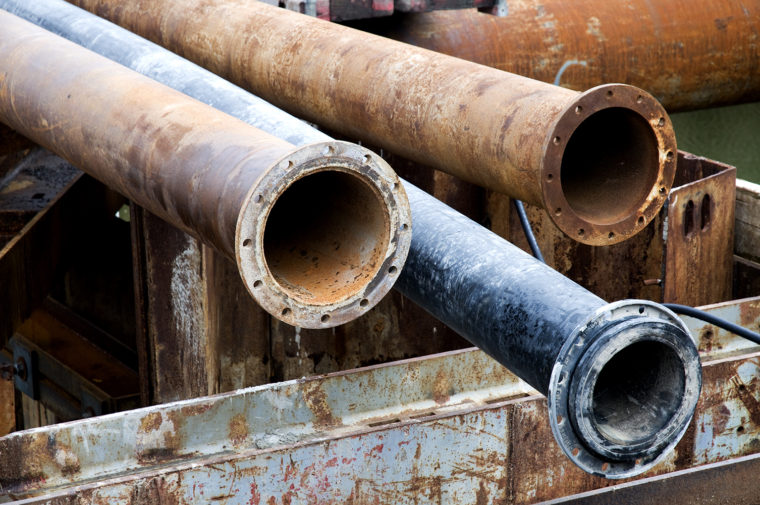The National Science Foundation, along with the Water Research Foundation, has awarded a pair of Washington University in St. Louis researchers $229,000 in grants to study ways to best control lead pipe corrosion, which can poison drinking water.
Daniel Giammar, the Walter E. Browne Professor of Environmental Engineering in the School of Engineering & Applied Science at Washington University in St. Louis; and Jill Pasteris, professor of earth and planetary sciences in Arts and Sciences, along with Yandi Hu, assistant professor in the University of Houston’s Department of Civil & Environmental Engineering, will use the funds to study the most effective ways of adding orthophosphate to reduce lead concentrations in tap water.
Adding orthophosphate to treated drinking water causes protective coatings to form inside, preventing corrosion and controlling lead concentrations at very low levels. This makes it more difficult for harmful lead to leach out, which can poison drinking water as seen in Flint, Mich.
Questions remain however, about the rate at which, and exactly how, the phosphate results in the growth and deposition of lead phosphate scales on aging pipes. This new research seeks to clarify the factors at work as phosphate forms these low solubility scales, and determine the rate at which it can grow on pipe surfaces.
“It currently can take over a year after starting orthophosphate addition for lead concentrations to drop to acceptably low levels, and this project will provide new insights into the processes occurring at the pipe-water interface that can help identify strategies to more rapidly control lead concentrations,” Giammar said.
